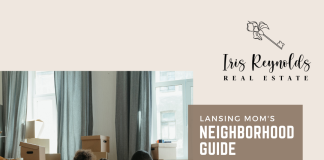A quick Google search shows countless resources for parents of children with ADHD. But there are very few resources for parents who are themselves living with ADHD or ADD. Around one in 25 adults has ADHD – and many of them are parents. So, how do we cope? My wife and I both have ADHD. I was diagnosed at a young age (and again as an adult), and have navigated the waters of neurodivergence through many big life stages. It’s become second nature in many ways. Truthfully, I hadn’t considered how it would impact parenting, but WOW has it. When looking for resources, I’ve been surprised to find very little information parenting with ADHD. I am hoping this blog can be one more resource for other parents in the same boat.
What is ADHD?
For anyone not intimately familiar with ADHD or ADD, it is far more than simply trouble focusing. In fact, many folks with ADHD would likely argue that the name itself is misleading. ADHD is a deficit of dopamine rather than attention. This creates an entire way of experiencing the world that is different from neurotypical people. It impacts relationships with other people, and even relationship with self. There is not enough space here for me to deeply dive into what it’s like to be a person with ADHD, but it’s important to share that it is wildly misunderstood by many people.
As new parents, it has quickly become clear that our neurodivergence presents some unique challenges to life raising a child. I’ll share some of the experiences we’ve had so far, as well as some tips for managing ADHD as a parent.
Sleep-Deprivation and ADHD
Plenty of research shows that lack of sleep increases ADHD symptoms in adults and children. ADHD brains naturally need more sleep while simultaneously having difficulty sleeping. Tossing parenthood into the mix is a triple whammy for managing this cycle. Even in neurotypical people, sleep-deprivation can mimic ADHD, causing difficulty focusing, procrastination, brain fog, and forgetfulness. Since sleep-deprivation is synonymous with parenthood, especially in the early years, it is critical to understand how sleep impacts your own symptoms, and to find ways to cope. For more helpful tips on the ADHD/sleep-deprivation cycle, check out this article.
Routine, Routine, Routine
Establishing routines can be challenging for people with ADHD. Routines are crucial to managing some of the more common symptoms like forgetfulness and struggles with organizational skills. The articles below have some great tips on establishing routines:
- 9 Tips for Creating a Routine for Adults with ADHD
- ADHD Daily Routine: How to Create Effective Structure
Lists and Checklists Everywhere

I don’t think I’ve ever seen a single “tips for coping with ADHD” article that doesn’t mention lists. And with good reason. Lists can help ADHDers organize otherwise disorganized thoughts. They certainly don’t work for everyone. But for those who do find them helpful, and for parents especially, creating checklists and posting them in places that are easy to see can be highly effective.
One thing we’ve found helpful is to create checklists of everything we need to get out the door in the morning. We hang this list right by the front door and do a quick check before heading out. It helps immensely with not forgetting the many items that we each need to take to work and what we need to take to daycare.
Adjust Your Expectations
Moms are often expected to be Supermom every single day. This expectation isn’t realistic for anyone, but for people with ADHD, it can be even more challenging to do it all.
Anecdotally, I’ve found it helpful to adjust my expectations of what a successful parenting day looks like. Will there be days that I knock it out of the park? Absolutely. But there will also be so many days when we’re running on slivers of sleep, or days that I’m especially struggling to find dopamine. On those days, I remind myself that it is more than enough to simply make it to the end of the day. I am as good of a mom on the days we’re doing Pinterest sensory activities and eating homemade organic purees as I am on the days we rely heavily on Ms. Rachel on YouTube and eat takeout. My baby is loved and cared for every day, and that is a success.
Divide Labor to Free Up Brain Space
It’s no secret that parenting means endless invisible labor – making sure everything is packed the night before, permission slips are signed, doctors’ appointments are scheduled. In homes with two parents, it can be helpful to have certain tasks be the sole responsibility of one person to help reduce some mental load. This is especially helpful for those tasks that aren’t particularly fun. As an example, my partner feeds the dogs in the morning and makes sure we always have food and treats on hand. It’s one thing I don’t have to think about, which helps reduce my load a bit. Since parenting means a massive increase in daily responsibilities, we’ve found this to be a helpful approach in balancing some of the mental load.
Seek Help If You Need It
ADHD is a very real disorder. It is common, under-diagnosed in women and girls especially, and is not something that has to be handled alone. If you find that your attempts at managing your ADHD symptoms yourself are not quite enough, find a doctor who may be able to help with medication or other solutions. Your primary care physician can diagnose and prescribe medication, but you may also consider working with a psychiatrist for more pointed care.
For more resources on parenting with ADHD, check out these two articles:
Parenting When You Have ADHD
I’m a Parent, but I’m the One with ADHD: How To Cope











